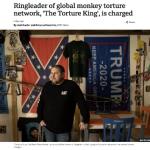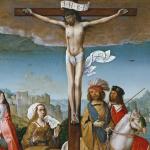R3 Editor
As I reflect on the 2012 election, the first group that comes to mind is conservative evangelicals who, despite their former beliefs and protestations about Mormonism, supported Mitt Romney, a devout Mormon. As I wrote about earlier when I began to see this trend happening, there is nothing wrong with conservative evangelicals supporting a Mormon candidate. I even suggested that maybe some in the conservative evangelical wing of the Republican Party were evolving to some sort of ecumenicalism that would lead to a more inter-religious dialogue. This would not be the case however, as many of them—who before believed that Mormonism was a “cult,” “non-Christian,” dismissed those ingrained beliefs and convinced others to do the same.
My thought is that many of them still do believe this and now will have to reconcile the fact that they rejected their own teachings about their faith. For many, it will cause some major theological cognitive dissonance. Before this election year, conservative evangelicals reminded their followers that they should support candidates who shared their beliefs and values. In short, they must support a Christian. That candidate, based on the conservative evangelical belief system, would have been president Obama.
However, they decided to support someone who they heretofore believed did not share their faith because of their own anti-Obama feelings. I imagine some may be wrestling with this because, for many conservative evangelicals, the faith is paramount; one should practice it unflinchingly and waveringly against all manner of temptations. In this instance, the temptation of replacing Obama as president was too good to pass up. So not only did they not adhere to their own principles embedded in their theology, but they also shirked their Christian beliefs by acting in ways that were not “ Christlike” because of their disdain for the President. But their efforts seemed to work because Romney received 79% of the conservative evangelical vote.
The other group I am reflecting on this morning is the group of African American clergy who led efforts to get black Christians not to vote for Obama because of his evolved position on marriage equality. Led by Rev. William Owens and Bishop Harry Jackson, this group of black clergy led their own voter suppression campaign as they attempted to appeal to congregants within the black church to get black people to vote for anyone besides Obama or just not to vote at all. Their attempts of voter suppression seemed not to work because the president received 95% of the African Americans church vote, up 1% from 2008.
Moreover, these would be leaders will also have to go back to their congregations in the aftermath of this election and explain to them why they would participate in an act that many (church going) African Americans feel as sacred. They also will have to explain their seemly selective critique of the president—namely why of the different policies that clergy leaders could and some would argue rightfully justify as a substantial critique, would they select this one? When one remembers that the president’s evolution was only a personal opinion and not policy, I believe one has the right to be suspect of Rev. Owens and Bishop Jackson’s “concern.”
However, this may all be for not. In talking with R3 contributor Earle Fisher on a panel this morning as we reflected on the election, he suggests they these two conservative groups would not have to offer any mea culpas or to use a religious term “confess.” His reasoning is that they do this knowing that their theological positions on paper have never matched their actions. You know, he is right. Conservative ideology and its kissing cousin, conservative theology has always been about maintaining the status quo; clogging up progress, grinding the forces of change. While both of these conservative groups, in an ideal world, have an opportunity to reshape and reconfigure their theological thought processes, chances are that they will not take advantage of the opportunity. Many will just double down on a more conservative interpretation of their own opportunistic shifting theology and in the process add to the growing number of dissatisfied former Christians looking for something relevant in their lives.
















